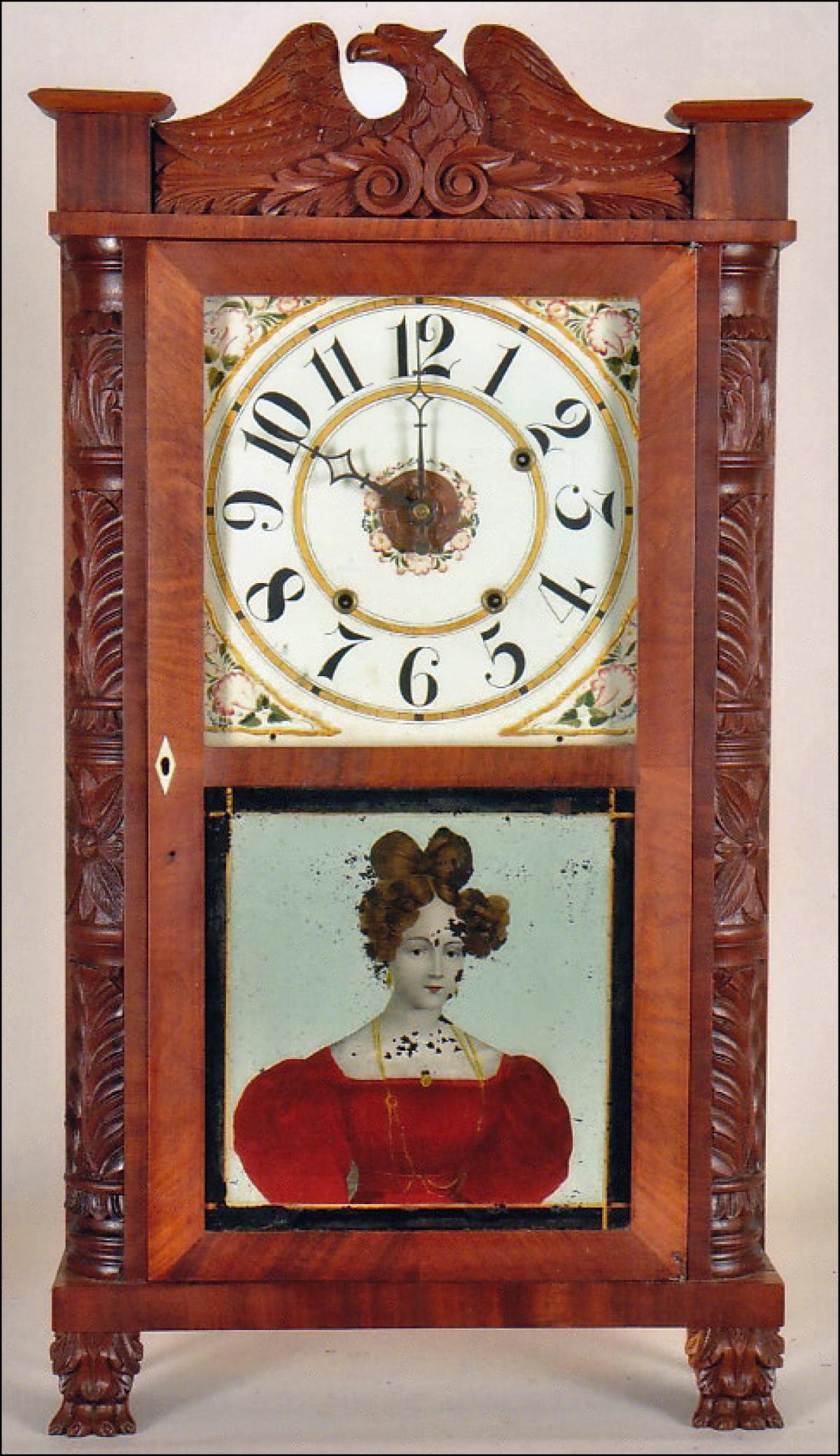Riley Whiting of Winchester, Connecticut.
This is a wonderful transitional shelf clock with pasted label by Riley Whiting of Winchester, Connecticut. This example incorporates many collectible components in a single example starting with condition.
This very colorful example is in outstanding original condition. This clock, having been made by a wooden geared clockmaker is fitted with a wooden geared, weight powered, thirty hour time and strike movement. This example also has the unusual feature of having an alarm mechanism that is fitted between the plates of the movement. Very few wooden gear clocks incorporate this additional mechanical option. The original Clockmaker's label is pasted inside the case onto the backboard. It lists the Maker and his working location. The painted wooden dial is decorated with colorful florals. These are found in the four spandrel areas and around the alarm disk located in the center of the dial. Raised gesso borders around the spandrels and the two time ring circles are highlighted with gilt paint. The lower section of the door is fitted with a colorful lithograph. This tablet is original to this clock and is in excellent original condition retaining vibrant coloring. The scene depicts a woman wearing a red dress. Her hair is tied up in a bow. This image is framed with a thin dark border. The case is mahogany and retains an older finish. Wonderfully turned and carved quarter columns flank the sides of the case. The detail of which is very strong. At the top of the case is a carved eagle splat. It is depicted with out stretched wings. It is supported with two capped wooden plinths. This case stands on it's original carved paw feet. Theses are in excellent condition. This mahogany case measures approximately 37.5 inches tall, 17.5 inches wide and almost 6 inches deep. It was made circa 1830.
Riley Whiting served his apprenticeship with the Hoadleys in Plymouth, Connecticut making wooden geared clocks. In 1807, Riley, Samuel and Luther Hoadley formed a partnership and began building short and long pendulum clocks. Luther Hoadley died in 1813 and about the same time, Samuel entered the U. S. Army. This left Riley in business all by himself. He continued as sole proprietor until he died in 1835. During this later period, Riley is thought to have perfected the eight-day wooden geared movement.






